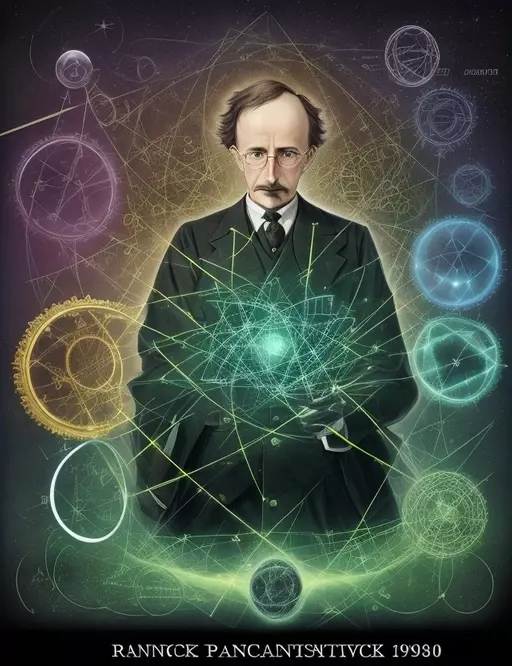Max Planck's Revolutionary Theory of Quantum Mechanics: Foundational Development in Physics
Presentation of Quantum Mechanics Theory (1900-12-19)

Max Planck's Revolutionary Theory of Quantum Mechanics
On December 19, 1900, a pivotal moment in the history of physics unfolded as Max Planck presented his revolutionary theory of quantum mechanics. This groundbreaking development marked a foundational shift in our understanding of the microscopic world and laid the groundwork for profound advancements in physics.
Presentation of Quantum Mechanics Theory
Max Planck's theory of quantum mechanics emerged as a response to the long-standing challenge of explaining the spectral distribution of blackbody radiation. In his presentation, Planck introduced the concept of quantized energy levels, proposing that energy is emitted or absorbed in discrete units or "quanta." This departure from classical physics principles was a radical departure but proved essential to resolving the observed phenomena.
Foundational Development
The theory presented by Planck represented a foundational development that departed from classical physics and introduced a new paradigm for understanding the behavior of matter and energy at the smallest scales. Planck's work laid the groundwork for future advancements in quantum theory and provided a theoretical framework for subsequent groundbreaking contributions by physicists such as Albert Einstein, Niels Bohr, and others.
Profound Impact on Physics
Max Planck's theory of quantum mechanics had a profound impact on the field of physics. It not only explained the observed phenomena in blackbody radiation but also paved the way for a deeper comprehension of atomic and subatomic processes. Quantum mechanics became a cornerstone of modern physics, revolutionizing our understanding of the fundamental nature of matter and energy.
Legacy of Scientific Breakthrough
As we reflect on December 19, 1900, we acknowledge the legacy of Max Planck's scientific breakthrough in the form of quantum mechanics. His theory, born out of a necessity to explain empirical observations, transformed the landscape of physics and opened new avenues for exploration and discovery in the microscopic realm.



